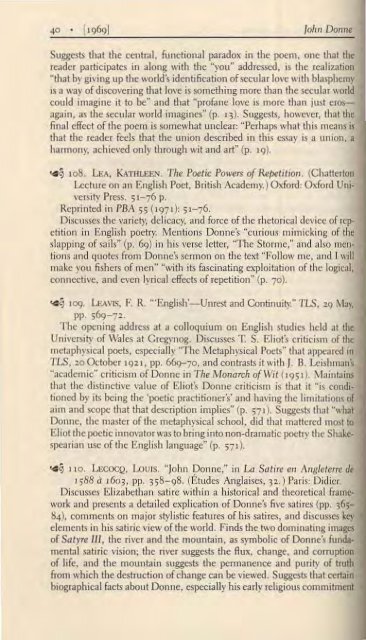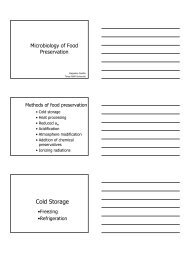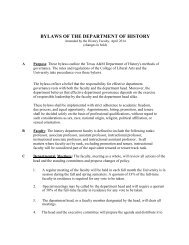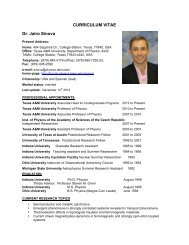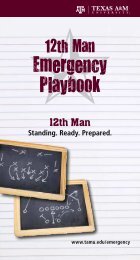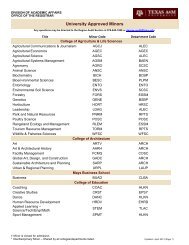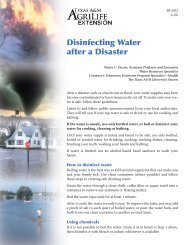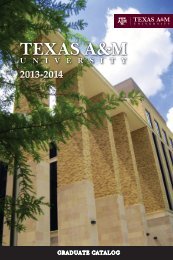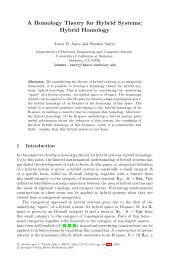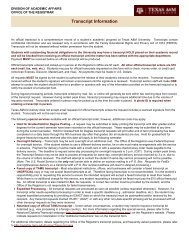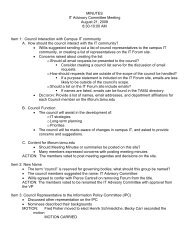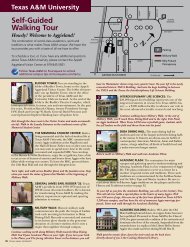- Page 1 and 2: DigitalDonne: the Online VariorumWe
- Page 3 and 4: Copyright © 1982 byThe Curators of
- Page 5: ant ntsPrefaceAbbreviation of Title
- Page 8: Preface 3bibliography are essential
- Page 13 and 14: Abbreviations of Titles of Journals
- Page 15 and 16: Abbreviations of Titles of Journals
- Page 17 and 18: \John Donnestability at the extremi
- Page 19 and 20: .. . [1068J John Donneand inventive
- Page 22 and 23: A Bibliography of Criticism [' 968
- Page 24 and 25: A Bibliograbh» of Criticism~ 29. M
- Page 26 and 27: A Bibliograph» of CriticismDevotio
- Page 28 and 29: A BibliogralJhy ofCrificism 23diffe
- Page 30 and 31: A Bibliogra phyo(Criticism [,q68J
- Page 32 and 33: A Bibliogra phy of Criticism(p. -1)
- Page 34 and 35: A Bibliogra(Jh y of CriticismPaul,
- Page 36 and 37: 1'01111 out tha Joseph Wybarne in h
- Page 38 and 39: .\ Bibliography cfCriticinn 333. FL
- Page 40 and 41: I us e the development of the ode a
- Page 42 and 43: t\ Bibliography of Cri ticismthe pr
- Page 46 and 47: ·\ BiblIOgraph y of CriticismI 'Ih
- Page 48 and 49: t\ Bibliography at" Criticism1066),
- Page 50 and 51: an -endent. the 'meditative,' and t
- Page 52 and 53: jBiblIOgraph y of CriticismtI c emp
- Page 54 and 55: ABibliography of Criticismmto a dee
- Page 56 and 57: 13 P IPER, W ILLI 1\1 BOWMAN. The I
- Page 58 and 59: Blbliograph)'of Criticismrd ver ifi
- Page 60 and 61: 1-0 EYM UR- MITH, MARTIN. "john Don
- Page 62 and 63: BIbliography of Criticismational Po
- Page 64 and 65: liogruph~ 'orCriticism59CC () the h
- Page 66 and 67: the shoe (shoe-show) a. a .ymbol fo
- Page 68 and 69: Ilih/iograph )' ofCriticismption or
- Page 70 and 71: "Ip '\ I ) nnd claims that the two
- Page 72 and 73: d iI whi h des ribc the ultimate co
- Page 74 and 75: ap"r ofCriticismJiII:m!cd for japan
- Page 76 and 77: [ 19 0] • 7 1lImlteClccl hal rno
- Page 78 and 79: Bibliogra IJh)' ofCriticismcnse de
- Page 80 and 81: • I,. H ANAK. MIROSLAV JOHN , "TI
- Page 82 and 83: A Bibliography o(Criticism [1970 ]
- Page 84 and 85: Bibliograph y ofCriticism2Z ::! . K
- Page 86 and 87: A Biblioaraph )'of Criticismanticip
- Page 88 and 89: A BibliogrC1ph)' orCriticismsuc h a
- Page 90 and 91: A Bibliogra phy ofCrilicislIl~ 241.
- Page 92 and 93: A Bibliograph » of Criticismof Don
- Page 94 and 95:
1\ Bibliograph)'cfCriiicismeration
- Page 96 and 97:
A Bibliograph y ofCriiicismof relat
- Page 98 and 99:
A Bibliograph >, of Criticismstock
- Page 100 and 101:
t\ Bibliography ofCriticism [19 0]
- Page 102 and 103:
A Bibliography of CriticismDistrust
- Page 104 and 105:
A Bibliograph y of Criticismbrillia
- Page 106 and 107:
A Bibliograph)'ofCrifici m [19 01
- Page 108 and 109:
human vanity, ambitious delu ion, p
- Page 110 and 111:
1\ Bibliography of Critici 111 1°
- Page 112 and 113:
V! 3D::!. D UBEL, \ LKI·.lt Tradie
- Page 114 and 115:
A Bibliogra phy ofCriticisl1I72); n
- Page 116 and 117:
A Bibliograph )' o{C riticism 1 I 1
- Page 118 and 119:
A Bibliograph y of Criticism 113~ 3
- Page 120 and 121:
A Bibliograph ofCriticismmyth and r
- Page 122 and 123:
A Bibliography of CriticismThe Poet
- Page 124 and 125:
A Bibliograph y o{Criticism~ 335. L
- Page 126 and 127:
A Bibliography of Criticism 121The
- Page 128 and 129:
A Bibliographr of CriticismW H. Aud
- Page 130 and 131:
t\ Bibliograph )'of Criticism 1 -,~
- Page 132 and 133:
A Bibliography o(Criticism(from the
- Page 134 and 135:
A Bibliogra ph y of Criticism 1 29p
- Page 136 and 137:
A Bibliography ofCriticislIImust he
- Page 138 and 139:
A Bibliography o{Criticismrespectiv
- Page 140 and 141:
A Bibliograph}' of Criticismand com
- Page 142 and 143:
A Bibliogra phy o{CrilicismCelebrat
- Page 144 and 145:
·~ 3 9· 13A"-'ER- IITII, Om-Ill I
- Page 146 and 147:
A Bibliography o{C riticisl1lcontai
- Page 148 and 149:
A 13ibliographr o{riticismthe poems
- Page 150 and 151:
" Bibliograph ' o( Critici,ml"the i
- Page 152 and 153:
A Bibliograph)'o[ Criticism~ 40 . D
- Page 154 and 155:
A Bibliography ofCriticismthe via m
- Page 156 and 157:
A Bibliograph )'o{ Criticismromanti
- Page 158 and 159:
A Bibliograpl,)' o( Criticismnotes
- Page 160 and 161:
A Bibliograph» ofCrilicislII~
- Page 162 and 163:
A Bibliograph y of Criticism 157Don
- Page 164 and 165:
i\ Bibliograph ' of Criticismof in
- Page 166 and 167:
A Bibliouraph ' of Criticism~ ~ 444
- Page 168 and 169:
A Bibliography o(Criticisming," ami
- Page 170 and 171:
A Bibliography u(CrilicismConjectur
- Page 172 and 173:
Call the I\ nni\'crsarics"the mo t
- Page 174 and 175:
A Bibliography of CriticismiVlilton
- Page 176 and 177:
A Bibliography of Criticism~ 469. M
- Page 178 and 179:
,\ Bibliography of Criticism I - ~I
- Page 180 and 181:
t\ Bibliography of Criticismarc all
- Page 182 and 183:
A Bibliography of Criticism [ H) ~
- Page 184 and 185:
Bibliography o{Criticism179I Ison D
- Page 186 and 187:
A Bibliography o{Criticism~ 4-92. S
- Page 188 and 189:
A 13ibliogra{Jhy of Criticism"nervo
- Page 190 and 191:
·~ .. ; O~ . 5. IPSO. ' , La I. .
- Page 192 and 193:
u e in facsimile, d cribes, and dis
- Page 194 and 195:
A Bibliograph y of Criticism~ 512.
- Page 196 and 197:
patn n or mere pandering to their t
- Page 198 and 199:
ihllOgmph)' o(Criticism193Ion 011 a
- Page 200 and 201:
•\ Bibliooraph)' o{Cntici mintrod
- Page 202 and 203:
19731 • 197DI' their brother, ir
- Page 204 and 205:
~'~~ l!2 les t that in " h, to vex
- Page 206 and 207:
Bibliograph)' of Sriiicism2 01ns,es
- Page 208 and 209:
[197 31 ' 2 0~111 Biathanato:and P
- Page 210 and 211:
A Bibliograph )'o{ Criticismacute c
- Page 212 and 213:
[1973] • 207lion style "is the pe
- Page 214 and 215:
A Bibliography orCriticismDonne (en
- Page 216 and 217:
nd to u est re emblance between hi
- Page 218 and 219:
Bibliography o{ Criticismcatcd. emb
- Page 220 and 221:
A Bibliogra IJh )' of Criticism [19
- Page 222 and 223:
t\ Bibliography of Criticism [197 3
- Page 224 and 225:
A Bibliooraphr of Critici TTl 219(1
- Page 226 and 227:
J ti man personally, they do sugges
- Page 228 and 229:
A Bibliography of Criticismunne Ris
- Page 230 and 231:
A Bibliograph)'of Criticismi also s
- Page 232 and 233:
1\ Biblioorapll ' of Criticism ....
- Page 234 and 235:
PRJ. ' FJELD. A :\ LEA . "[ohn Donn
- Page 236 and 237:
• 1 • YOI\O"I''\, NAKAZO. "John
- Page 238 and 239:
iticismI . • ' .-\ 'U . I\ 'L lOB
- Page 240 and 241:
2 ' BLAMIRES, H ENRY. A Short Histo
- Page 242 and 243:
_9. HA. ORA. l ARESH. "John Donne t
- Page 244 and 245:
liogrtlph y ofCriticismI h R nai: n
- Page 246 and 247:
Blb/iograph )'of Criticisml. Paul a
- Page 248 and 249:
ing 10 'a masked moon' covering a '
- Page 250 and 251:
Bibliogra phy orCriticismr xternal
- Page 252 and 253:
1 H EOI::TOFT. LF. "The Contra ct d
- Page 254 and 255:
hich revea ls some things about the
- Page 256 and 257:
s the . tanza," thus making the glo
- Page 258 and 259:
I h rs in :I sober recommendation."
- Page 260 and 261:
with prescribed attitudes" (p, 28).
- Page 262 and 263:
4. MAlmTTI, ARTHUR F. "Donn e and '
- Page 264 and 265:
utions Donne throughout this study
- Page 266 and 267:
e l thi truth in order to free our
- Page 268 and 269:
his epigram any time between the ea
- Page 270 and 271:
Bibliograph )' orCriticism10 0 - 1
- Page 272 and 273:
urld i "loa pervcr c, as well as to
- Page 274 and 275:
I 101 a reconsideraliou of his rela
- Page 276 and 277:
of physical death and even jellied
- Page 278 and 279:
liograph y o{CriticismII xtcud the
- Page 280 and 281:
Bibliograph y of Criticism6 12 to E
- Page 282 and 283:
notes the difference by contrasting
- Page 284 and 285:
ihliograph)'of Criticism279own weap
- Page 286 and 287:
II mlion of the analogical system w
- Page 288 and 289:
Bihliography of Criticism[1975] •
- Page 290 and 291:
thod of argument which he employs w
- Page 292 and 293:
B,b/rograph )' ofCriticismII Is, [e
- Page 294 and 295:
a list of igla (pp. cxxii-cxxiii).
- Page 296 and 297:
IbllOgraphy of Criticistnrn that do
- Page 298 and 299:
. ul \\it or bitter cynici rn. Chap
- Page 300 and 301:
\ Bibliography of Criticism: - 5:.
- Page 302 and 303:
Bibliograph )'of Criticismpani h. I
- Page 304 and 305:
Blblmgmphy ofCriticism.~ ~61 KIPAIC
- Page 306 and 307:
Bibliography of Criticism 3°1Discu
- Page 308 and 309:
Bibliogra phy of Criticism~ 773, OT
- Page 310 and 311:
Bibliography o{Criticismo mon Irate
- Page 312 and 313:
ne . combined with his stylistic or
- Page 314 and 315:
Bibliograph )' o{ Criticismntain: a
- Page 316 and 317:
J\ Bibliography oi Cnticism3 1 1.ua
- Page 318 and 319:
I xl 'C3 and how opinions of it hav
- Page 320 and 321:
imcntation . I i. Cl1S.\C the four-
- Page 322 and 323:
f19--] - /)~ 171 iploys the philo-
- Page 324 and 325:
Bihliograph}' ofCriticismCumbcrt an
- Page 326 and 327:
~ 1 1. CAMERON. AlU:N BARRY. "Donnc
- Page 328 and 329:
BibliographyofriticismI • argumen
- Page 330 and 331:
13ib/iograph" of CriticismJ \ of hi
- Page 332 and 333:
nrc. \' OClISCS on the issue of how
- Page 334 and 335:
Bibliogmphy orCriticismays that "Th
- Page 336 and 337:
[ IC) 6] 331edition, and in Clement
- Page 338 and 339:
during the sixteenth and seventeent
- Page 340 and 341:
A BibliogrClIJh )' ojCriticismSo nn
- Page 342 and 343:
A Bibliogra phy o[ Criricistll(p. l
- Page 344 and 345:
[1976] 339ding mourning" and the ov
- Page 346 and 347:
\ Bihliograph )' of Criticism34 1ph
- Page 348 and 349:
A Bibliograph}' ofCriticismmeditati
- Page 350 and 351:
h III phra e in Latin ("Jal vitan.
- Page 352 and 353:
\ Bibliugraph}' of Criticism[1976]'
- Page 354 and 355:
Bihliograph )' of Criticism[ 197613
- Page 356 and 357:
A Bibliography o(Criticismages are
- Page 358 and 359:
Bibliography of Criticismgain t the
- Page 360 and 361:
ibliography ofCriticism 355especial
- Page 362 and 363:
\ Bibliograph )'of CriticismH 7I bl
- Page 364 and 365:
Bibliogrdphr ofCriticismbviou Iy in
- Page 366 and 367:
.\ Bibliograph }' o(Critic;sm,~~ 9:
- Page 368 and 369:
\ Bibliography of Critici. m [ Iq-
- Page 370 and 371:
A Bibliography of Criticismthree of
- Page 372 and 373:
A Bibliograpl: ' o{ Criticism [1977
- Page 374 and 375:
A Bibliograph y of Criticismmortali
- Page 376 and 377:
,\ Bibliographr of Critlcism[1977]
- Page 378 and 379:
Bibliography o{Crilici,m[1977J •
- Page 380 and 381:
t\ Bibliagraph)' o{Criticism [19771
- Page 382 and 383:
ABibliograph}' of Criticism I I q77
- Page 384 and 385:
A Bibliogra phr ofCriticismHerbert
- Page 386 and 387:
Bibliographr ofCriticismPihlman Pop
- Page 388 and 389:
:\ Bibliographl' o{Criticism'~ 1 9T
- Page 390 and 391:
:\ Bjbl iogra p" ~' of Crit icismma
- Page 392 and 393:
~ Blhlwgraph)'of Critici mntcrprcti
- Page 394 and 395:
A Bibliography of Criticism(l q :W-
- Page 396 and 397:
[197 1 • 39 1o the tw ntieth-cent
- Page 398 and 399:
\ Bibliography o{Criticism /197 J
- Page 400 and 401:
Bibliograph)' o{Criticism[197 1 •
- Page 402 and 403:
A Bibliograph )' o{Criticismsecular
- Page 404 and 405:
A Bibliography o{Criticisl1Ithat in
- Page 406 and 407:
1\ Hibliograph r of Criticism~ ~ 10
- Page 408 and 409:
A Bibliography ofCrilicismthe Bell
- Page 410 and 411:
\ Bibliograph» o{Criticism~ 102 7
- Page 412 and 413:
A Bibliogra ph)'o(Criticism [1978]
- Page 414 and 415:
A Bibliography of CriticismNotes th
- Page 416 and 417:
Ind " X f uthor ~ ditors,and Transl
- Page 418 and 419:
.Author IndexEv erett, Barbara. .p
- Page 420 and 421:
:\ ut/lOr IndexKreps. Ba rbara I..
- Page 422 and 423:
.pS ha\\cllJ.'~. lohn 'I:. - I. I -
- Page 424 and 425:
Subject Index(T he following is all
- Page 426 and 427:
Sub ject Index11. 20.31. :;1. ;b, 7
- Page 428 and 429:
Subject l vul exDramatic monologue.
- Page 430 and 431:
Subject ludC'xlncamntiou (Incaruati
- Page 432 and 433:
Subieet indexXcw philusophv (l':I.'
- Page 434 and 435:
Subiect lnde:l.Shakespeare. W illia
- Page 436 and 437:
Index of Donne's WorksM entioned in
- Page 438 and 439:
Index of \ \'orks10; 1; Satpe V. ;;


